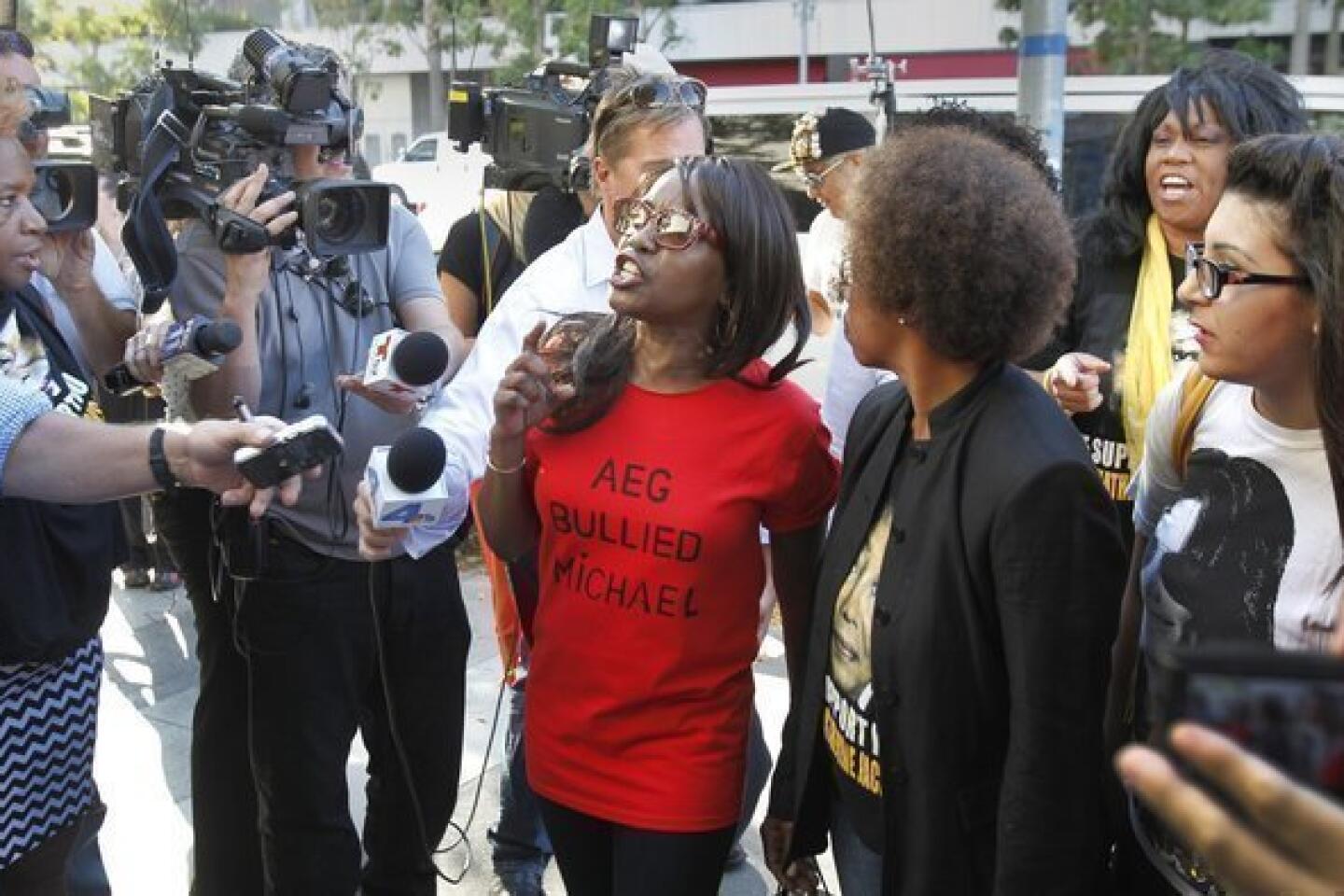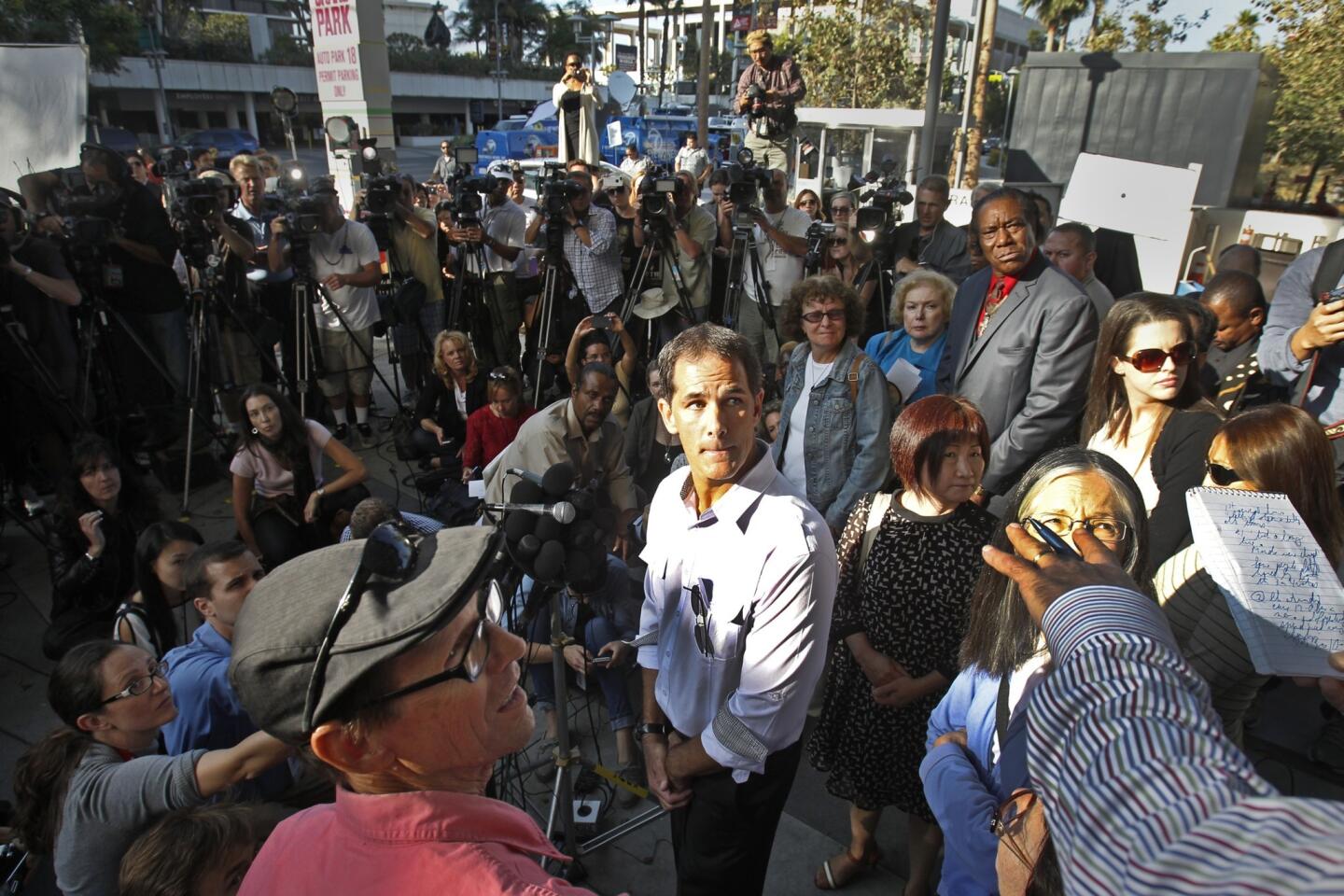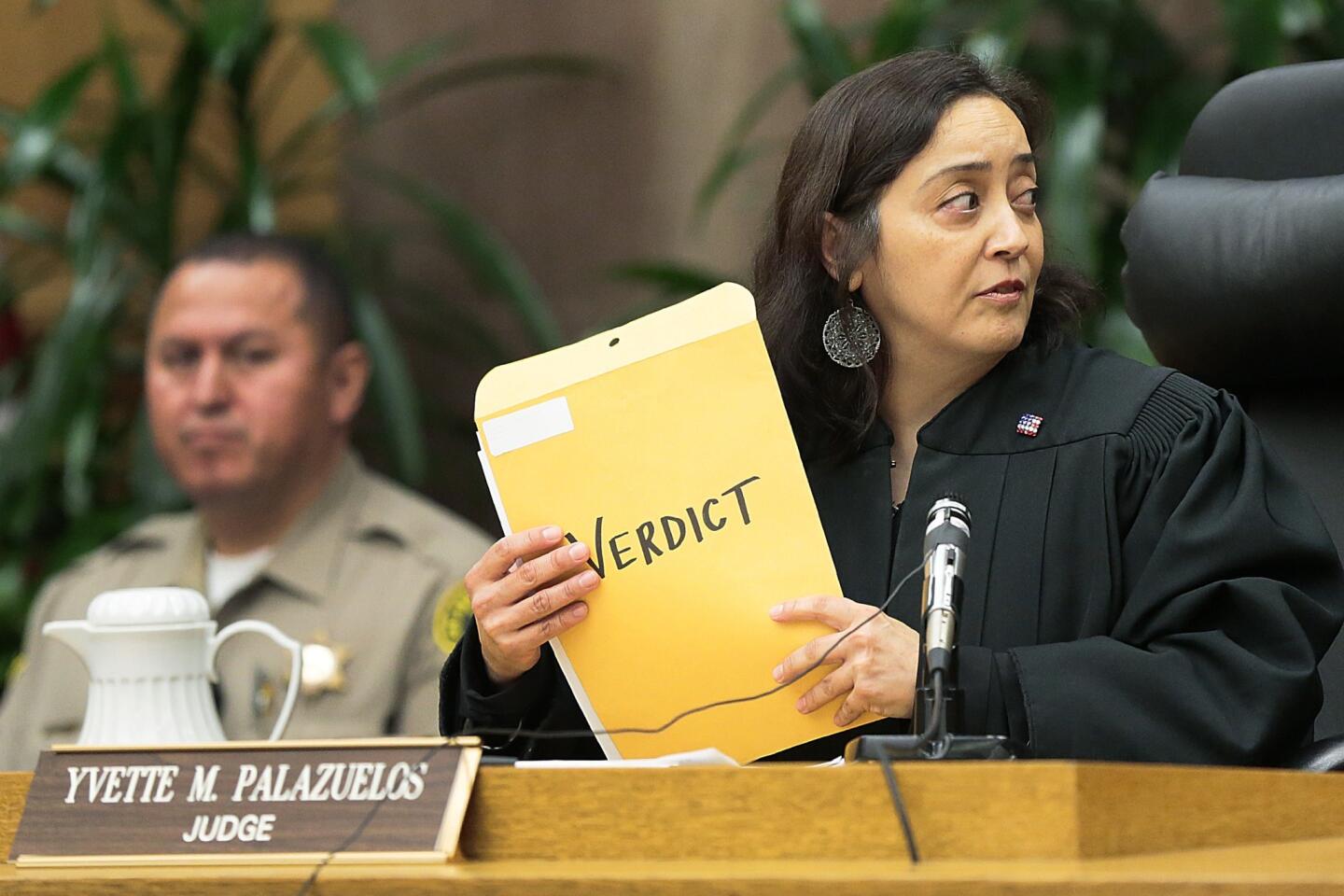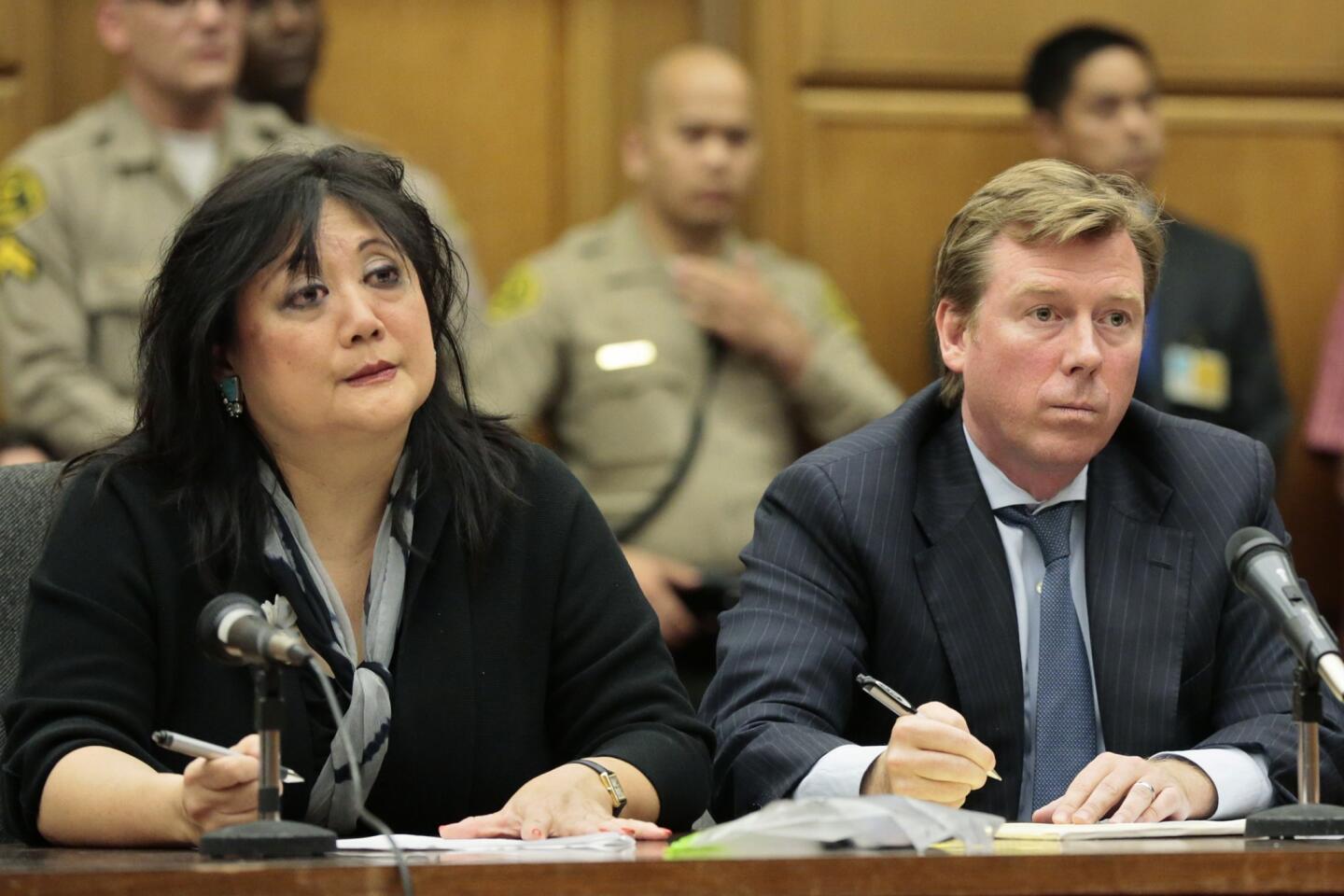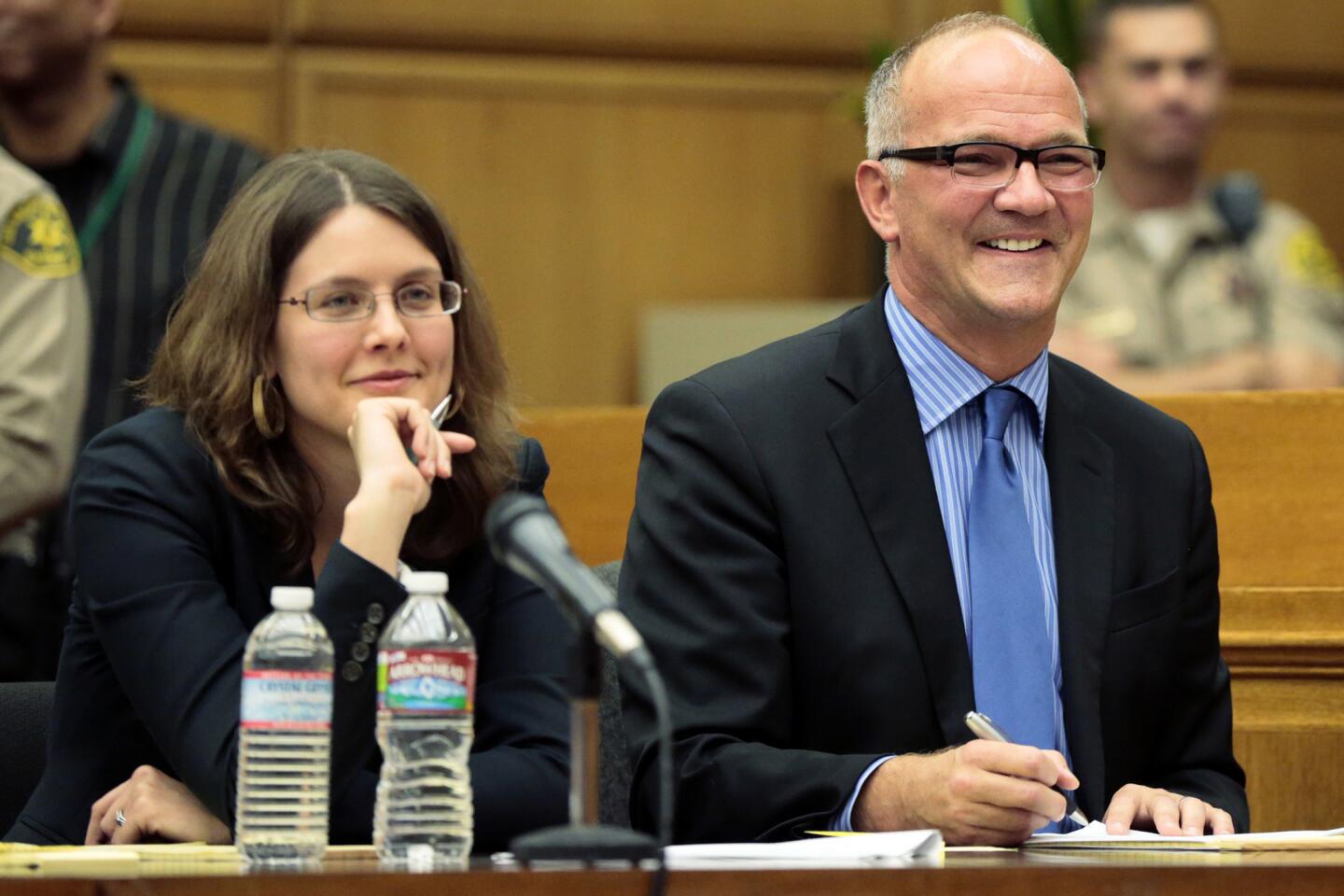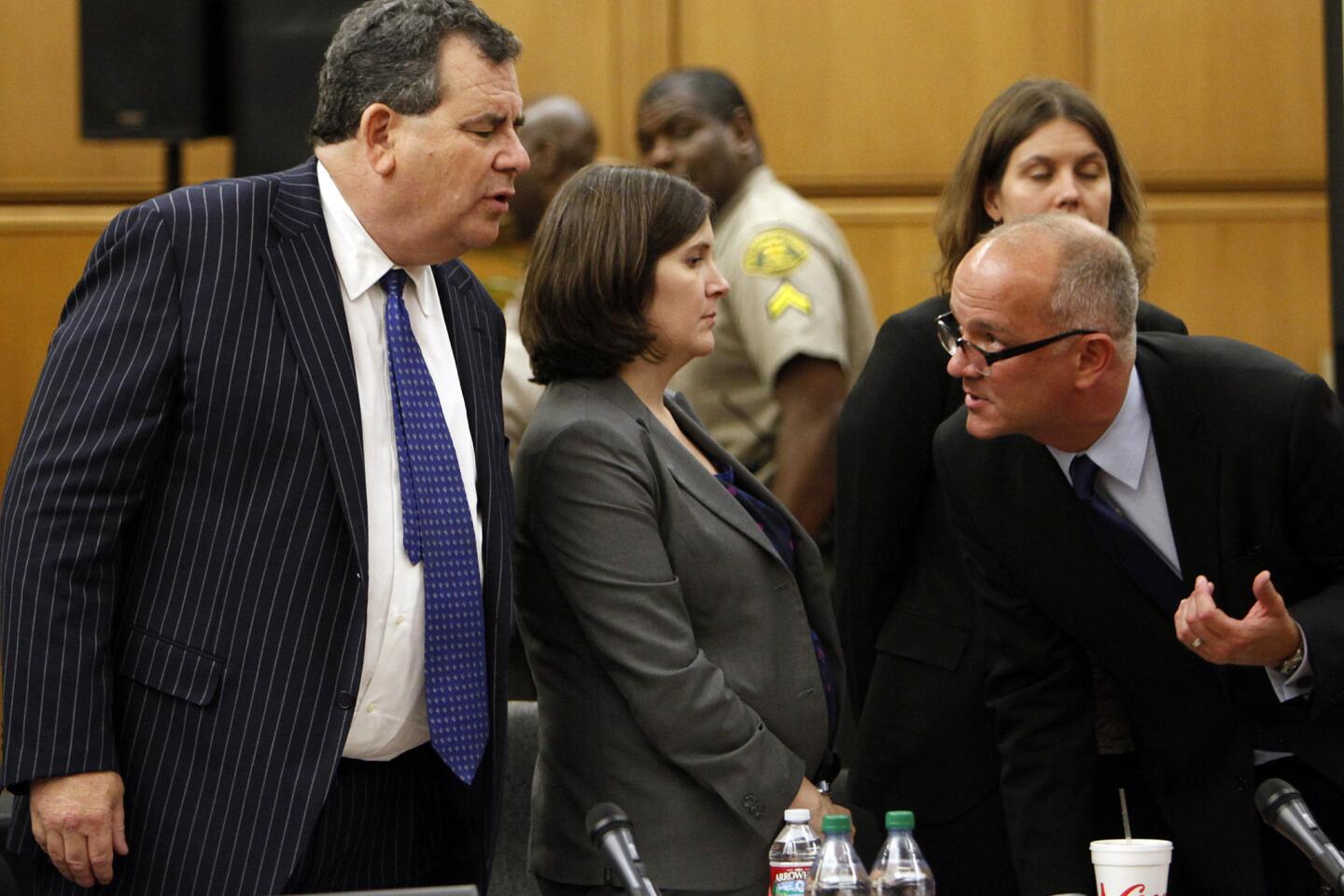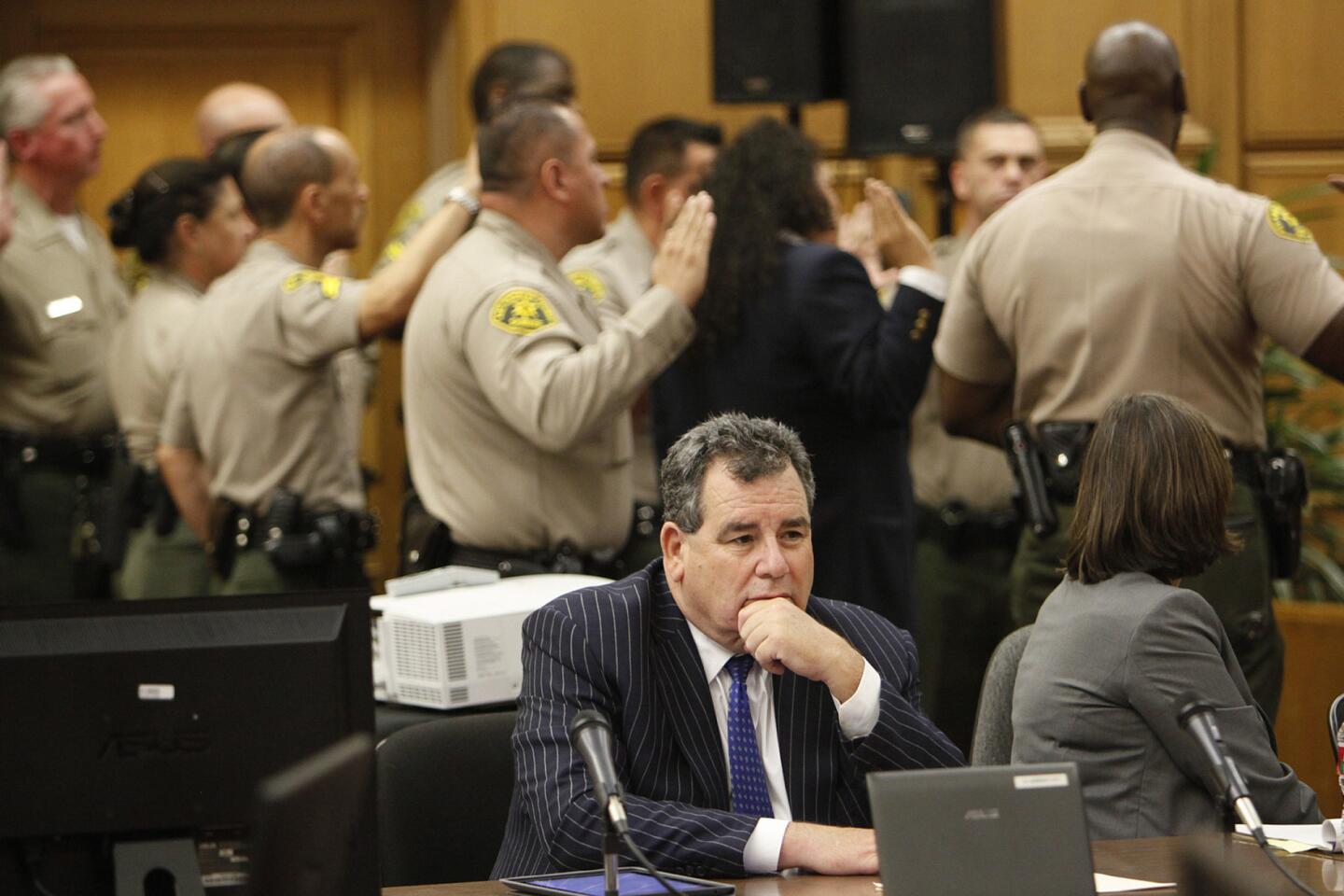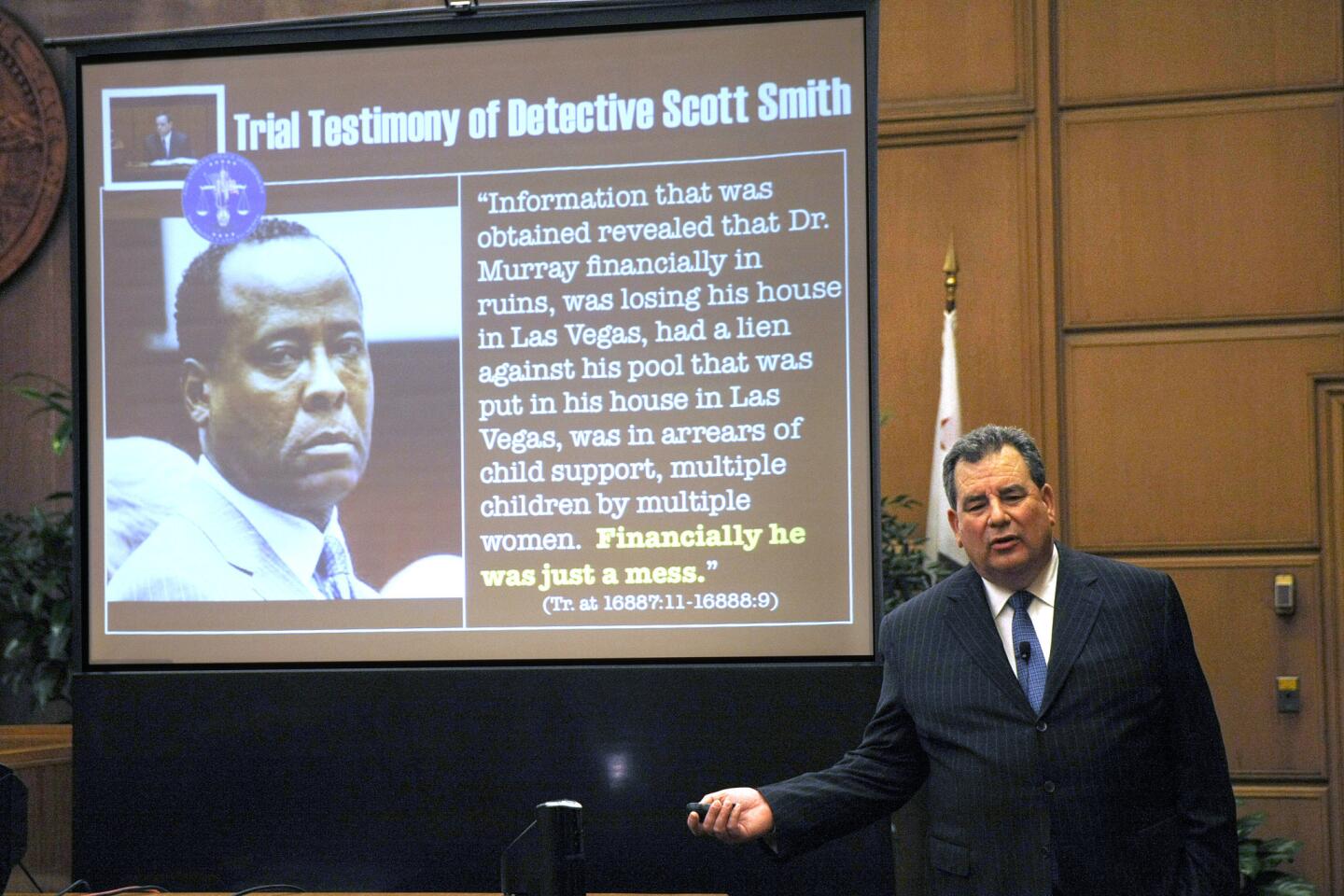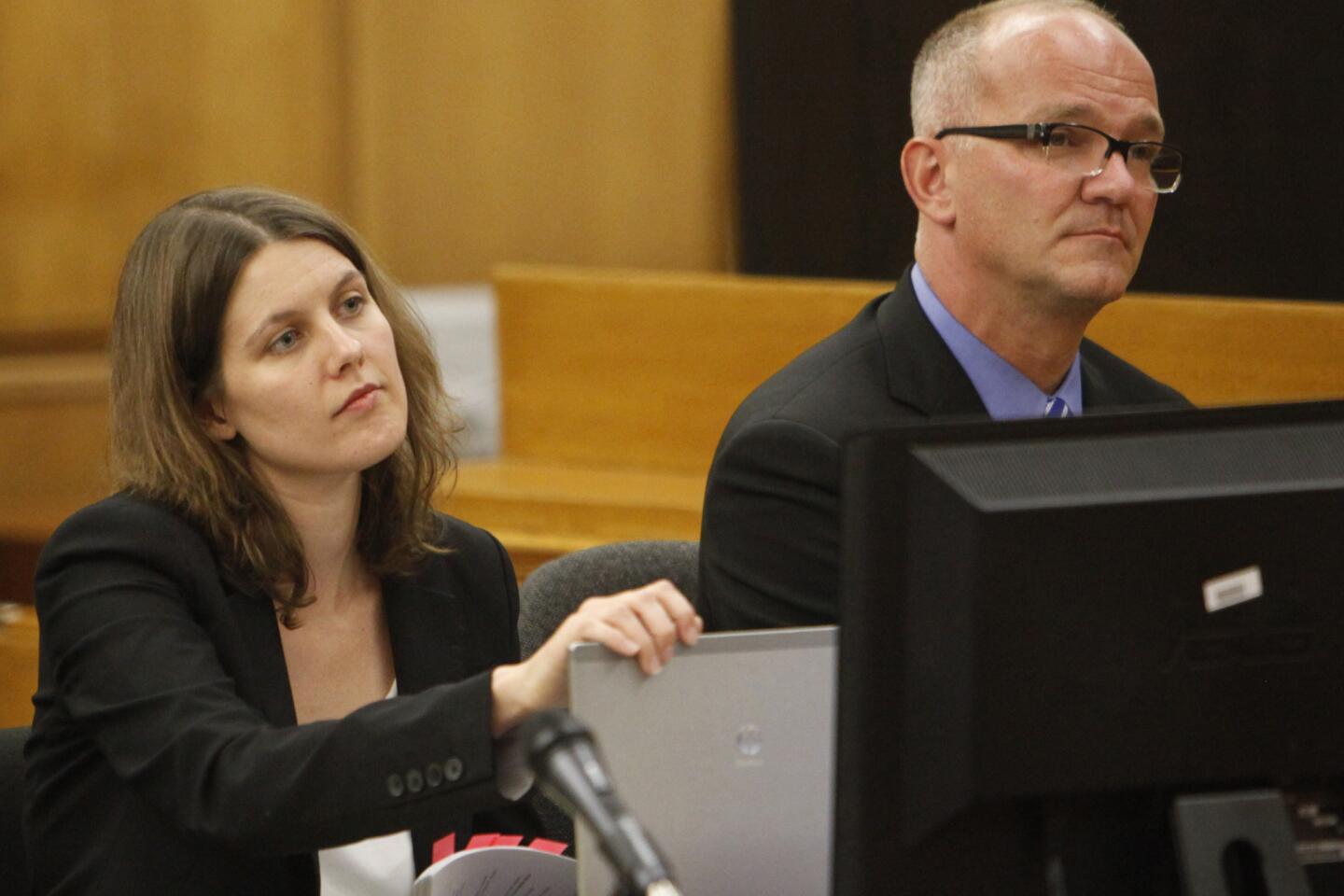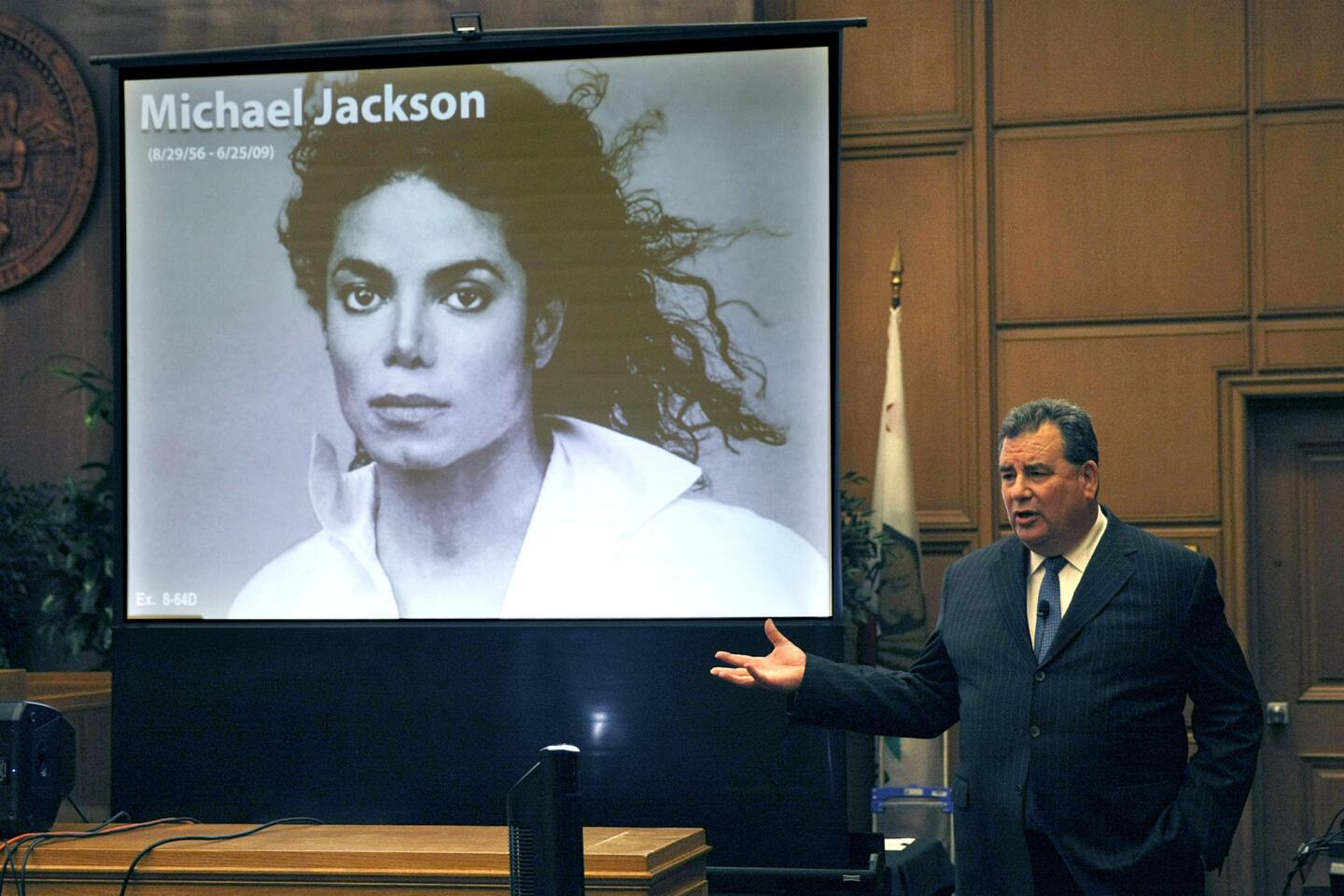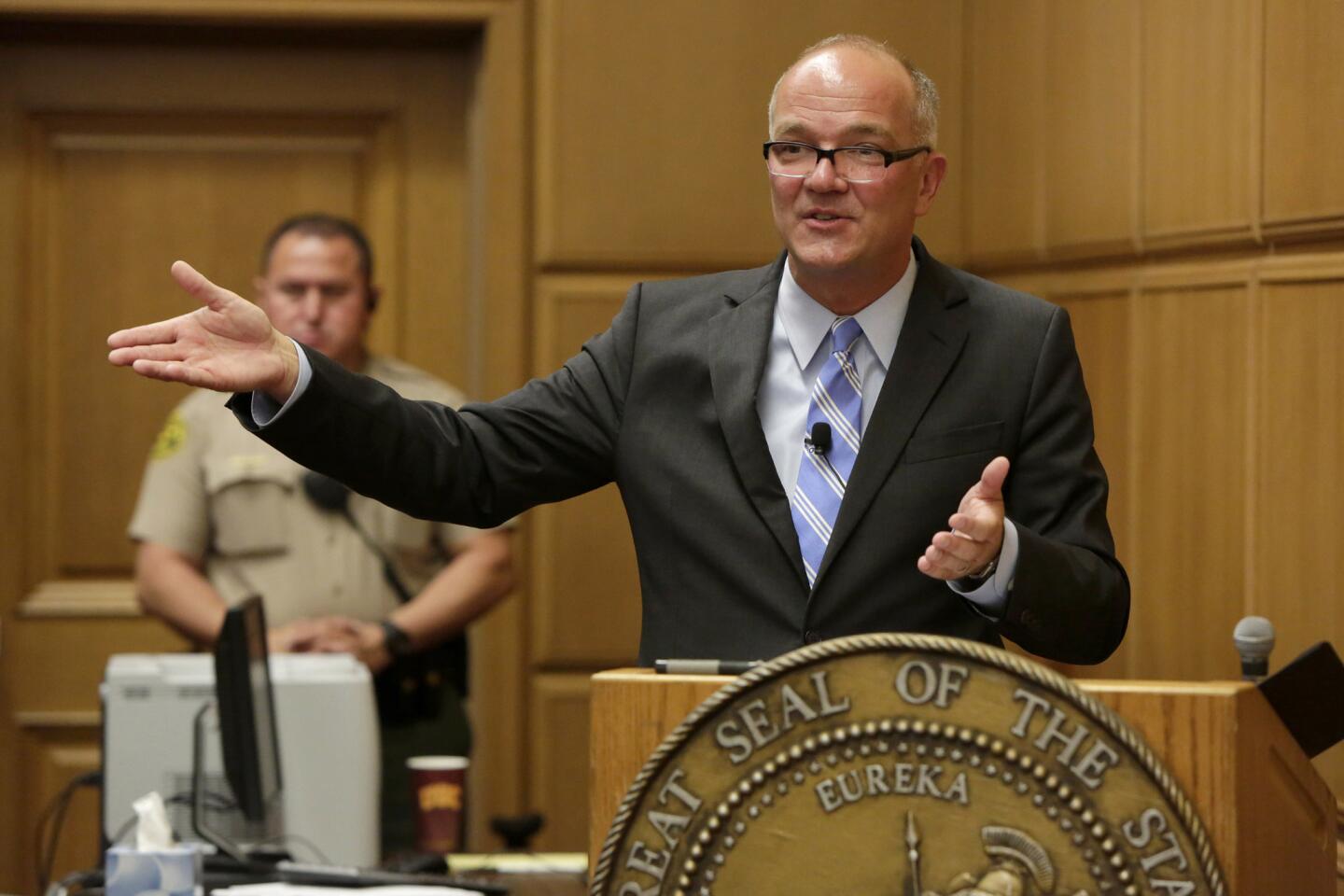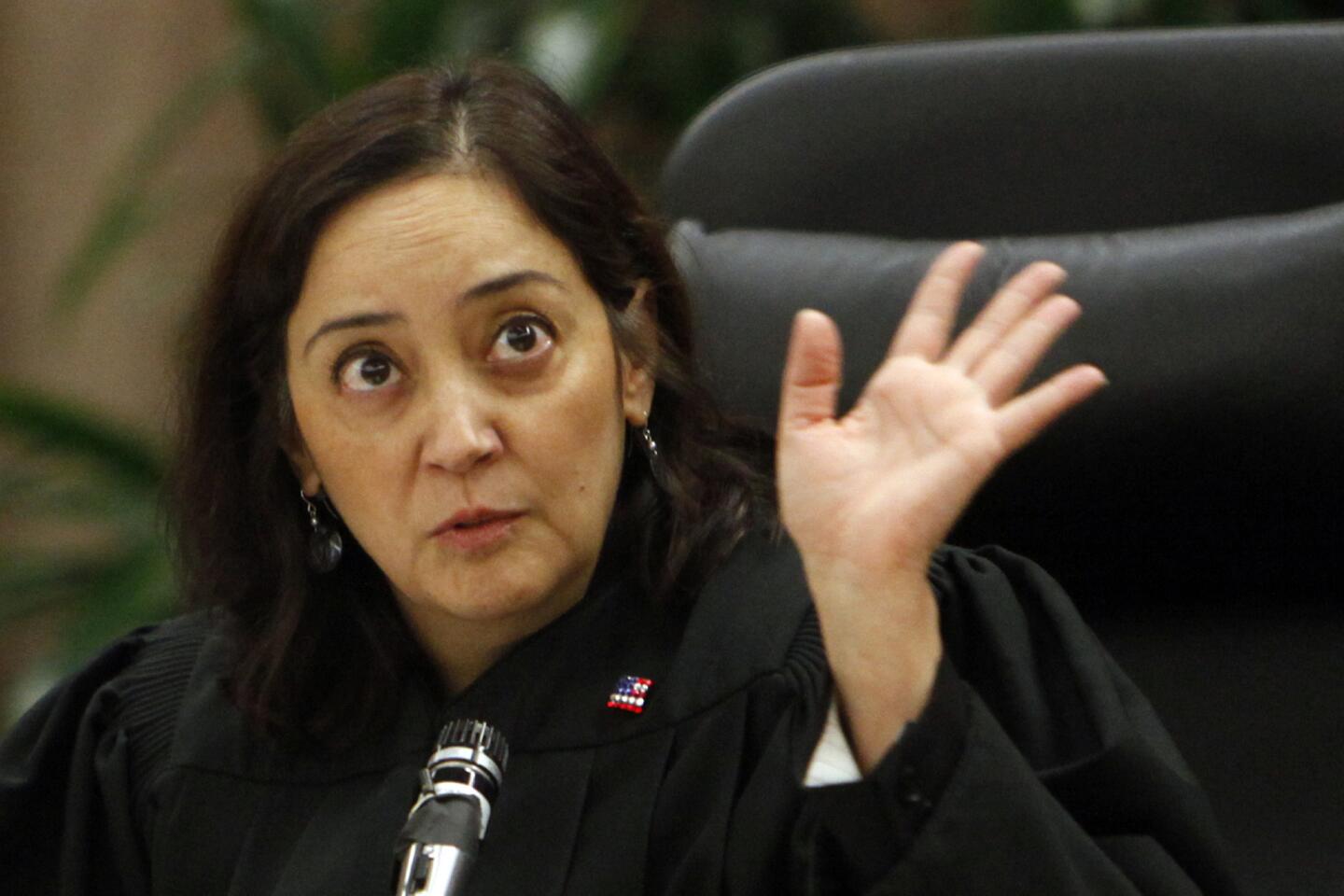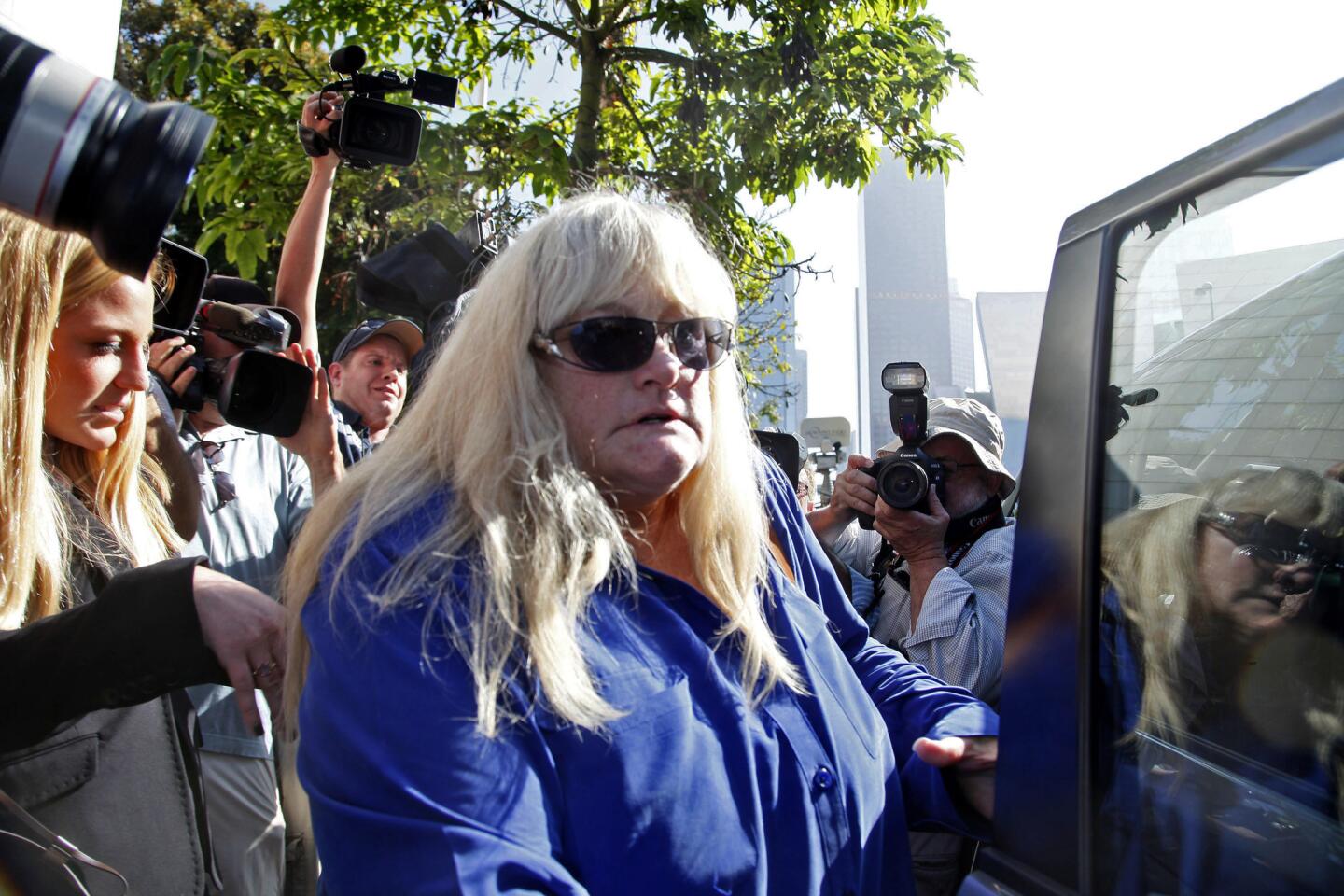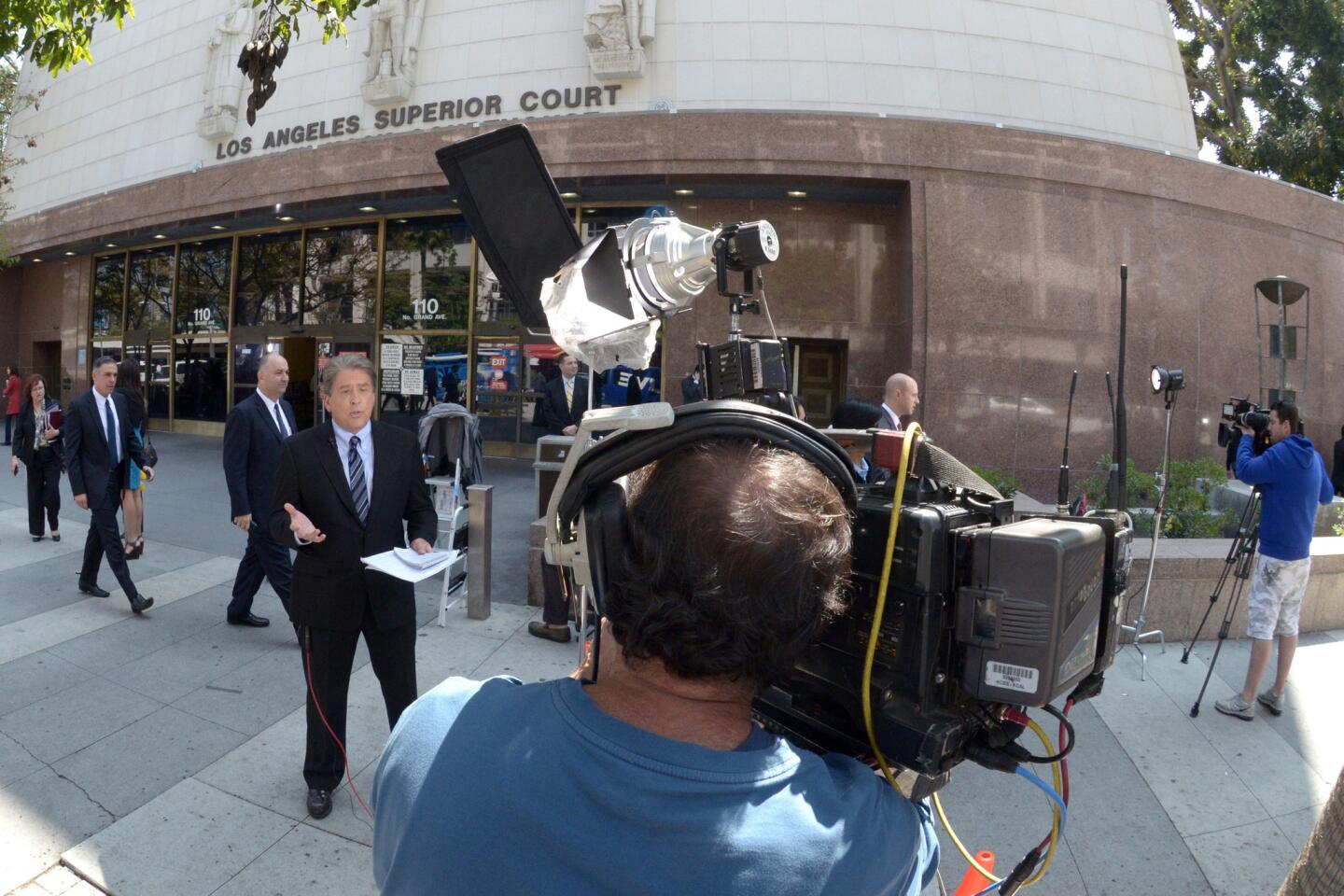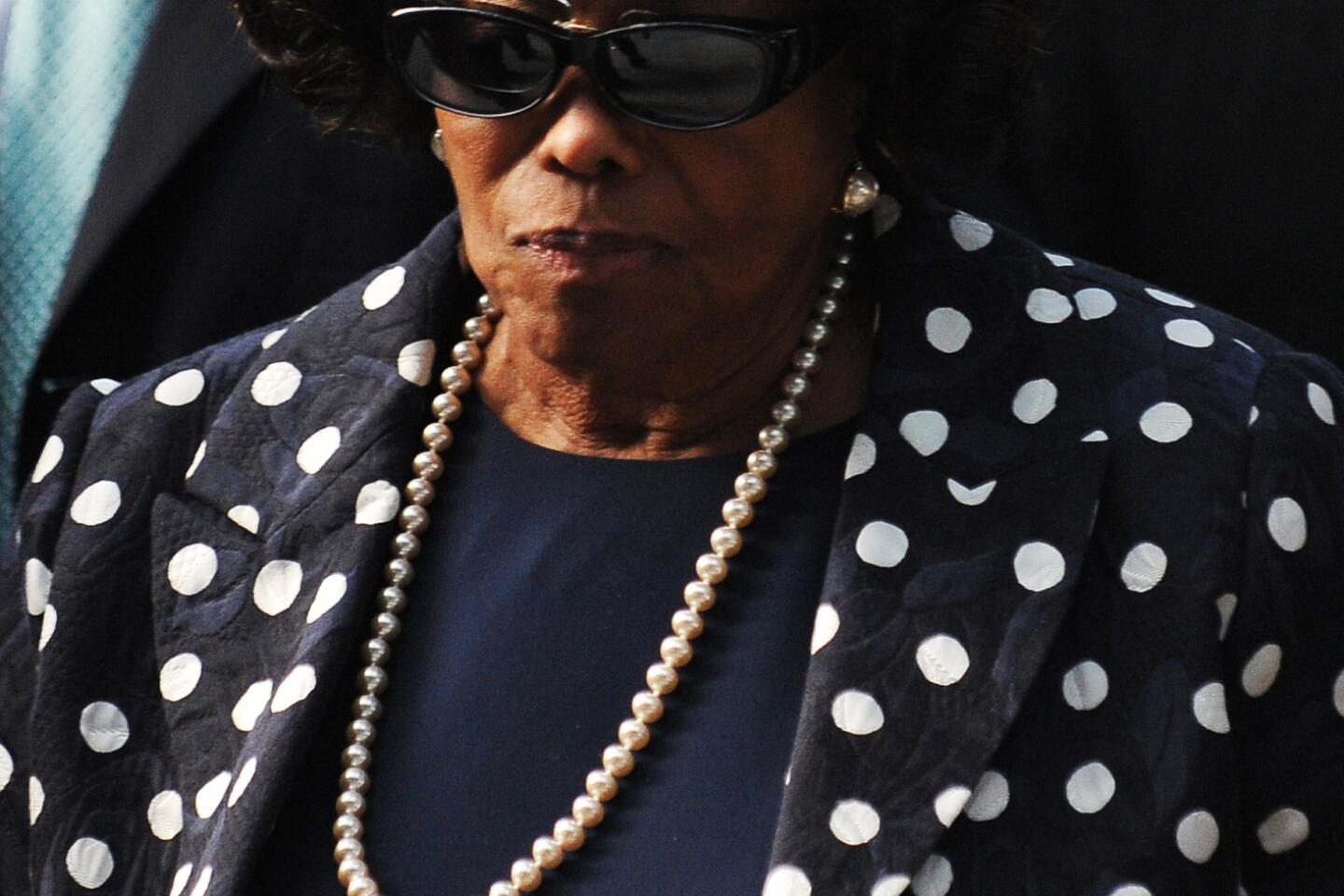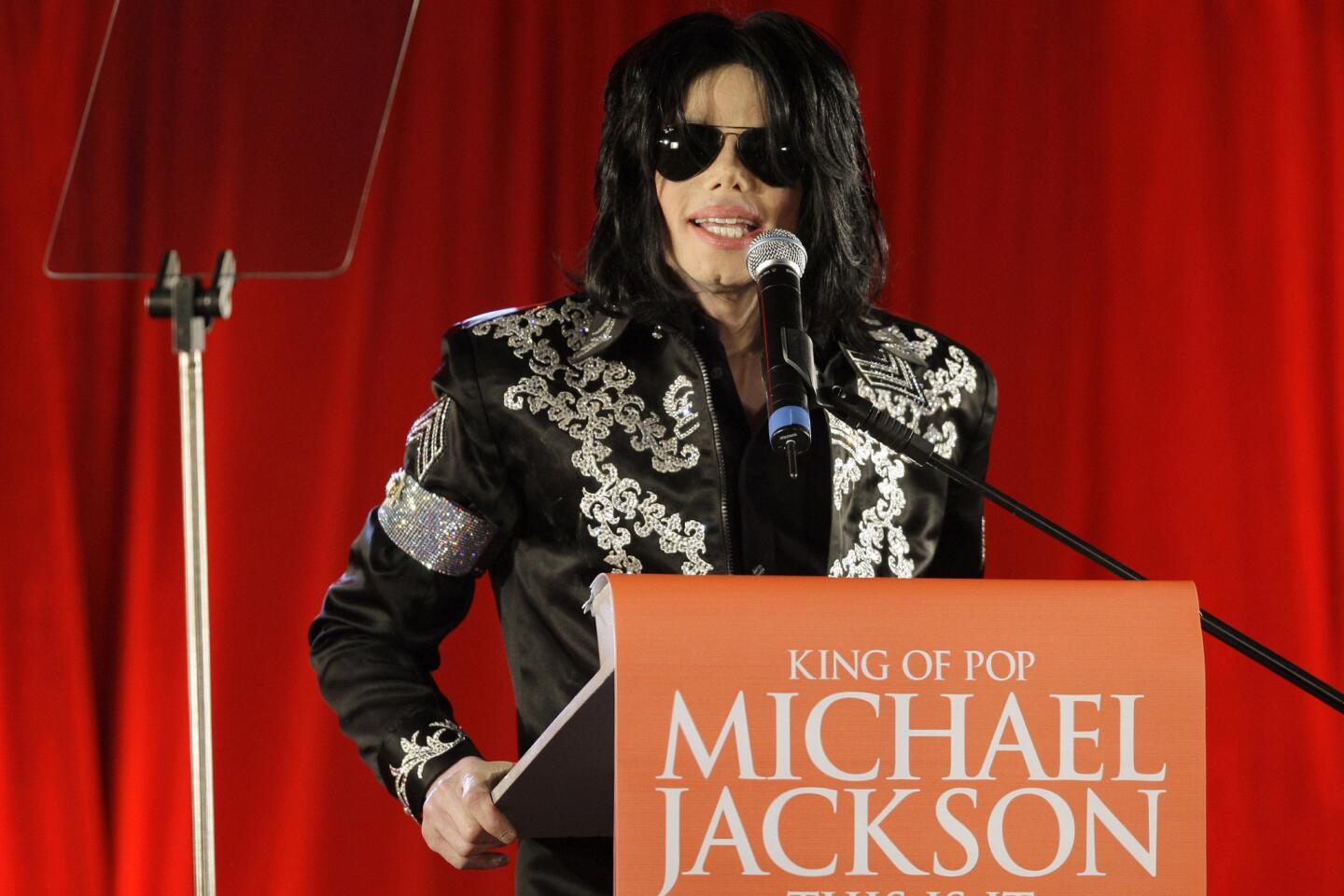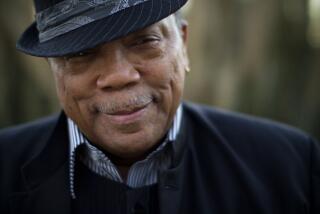Michael Jackson thought his face was disfigured, Debbie Rowe says
- Share via
After 3 1/2 months of sometimes tedious testimony from medical experts and accountants, the Michael Jackson wrongful-death trial took a deeply personal turn this week as the singer’s ex-wife provided emotional testimony about his eccentric life and struggles.
Debbie Rowe elicited several laughs from the jurors, telling an attorney to “relax,” and broke into tears on occasion. She said the King of Pop suffered chronic pain and thought of himself as “Elephant Man” because of a skin condition.
She told how she and Jackson were watching “To Kill a Mockingbird” one night when they had a question. They called Gregory Peck, the star of the film and a friend of Jackson’s, to see if he could help.
She told jurors how she met Jackson while working as an assistant to his dermatologist, Dr. Arnold Klein, and how she became his confidante and then the mother of his two oldest children.
Rowe said the singer was devastated by his earlier divorce from Lisa Marie Presley, Elvis’ daughter.
She testified that after the split, she asked him, “‘What’s the thing that makes you the saddest?’ He said, ‘I never had any children.’ ”
Rowe told him, “Let me have a baby with you. You can have the joy of being a parent.”
She said Jackson thought about it for a couple of weeks before agreeing.
Deborah Chang, an attorney for Jackson’s family, showed jurors a photo of Rowe, riding her Harley with Michael on the back, still in makeup while shooting his “Ghost” video at Van Nuys Airport. The day it was taken, Rowe said, she told the singer she needed to talk to him alone, without the ubiquitous film crew that followed him.
“You’re going to be a dad,” she told him. “He ran around the tarmac screaming.”
She did not say how the child was conceived.
“I believe there are certain people who need to be parents, and I always thought he was one of them,” she said.
She said that when Jackson went on tour during her pregnancy with Prince, he left behind two cassettes. “Every night while I was reading my horror books, I had my headset over my stomach so the baby could hear his voice,” she said.
When the couple divorced after three years of marriage, Rowe gave up her parental rights, a decision she said she never has regretted.
“I didn’t sign on to be a mom,” she said. “I loved him very much, and I still do. I wanted him to be a father. I wanted him to have everything he didn’t have growing up. I wanted him to experience it with his own children.”
Attorneys for AEG Live, which called Rowe as a witness, did not ask her how she squared her testimony with her attempt to regain her rights after her ex-husband was charged with child molestation.
Jackson’s mother and three children are suing AEG, saying the concert promoter and producer negligently supervised and hired Conrad Murray, the doctor who gave Jackson the fatal dose of the anesthetic propofol. AEG says the singer hired Murray and that any money the company was supposed to pay the doctor was an advance to Jackson.
Asked about her relationship with 16-year-old Prince, who attends a private high school in the San Fernando Valley, Rowe shrugged. “We don’t hate each other, if that’s what you mean,” she said. “I’m closer to my daughter.”
Rowe said that she and Paris, 15, talk on the phone and text frequently and that her daughter stays with her on weekends.
Rowe, who raises quarter horses in Palmdale, sobbed as she explained how Jackson’s death affected her daughter, who attempted suicide in June.
“She is devastated,” Rowe sobbed. “She tried to kill herself. … She doesn’t feel like she has a life any more.”
Rowe said her ex-husband suffered from vitiligo, a disease more common in African Americans in which portions of the skin lose pigment. As the disease grew worse, he decided to “depigment” his skin because he couldn’t find decent makeup.
“Everybody says he bleached himself, which he didn’t,” Rowe said.
She said Jackson also suffered from discoid lupus and keloids resulting from serious burns on his scalp sustained during the 1984 filming of a Pepsi commercial, which led him to take pain medication that he became addicted to.
She said that he didn’t doctor-shop for drugs but that she once asked Dr. Klein in the late 1980s or early 1990s if Jackson was addicted to propofol because of the number of times he was using it for medical procedures. She said Klein told her propofol was not addictive.
Rowe also gave jurors her version of medical care in the U.S. “The very rich, very poor and the very famous get the worst medical care,” she said.”The very rich can buy it, the very poor can’t get any and the very famous can dictate it.”
ALSO:
Rockefeller impostor gets 27 years in prison; maintains innocence
DiMaggio likely planned to kill Hannah Anderson, family rep says
Internal review expected in ‘missing’ ICE agent case
More to Read
Sign up for Essential California
The most important California stories and recommendations in your inbox every morning.
You may occasionally receive promotional content from the Los Angeles Times.
